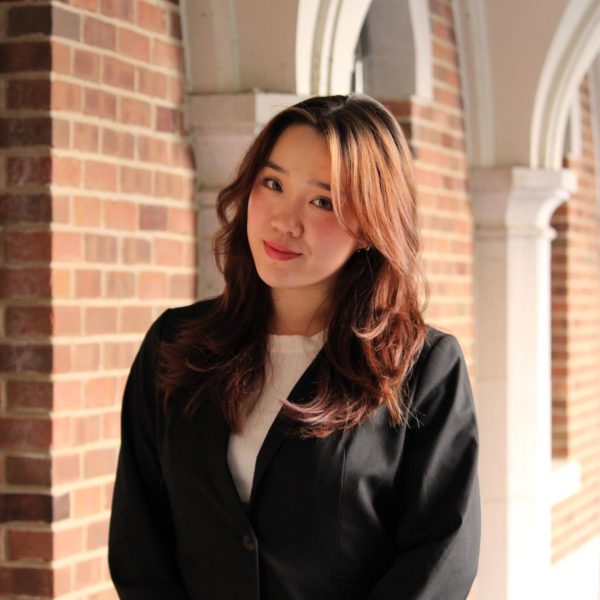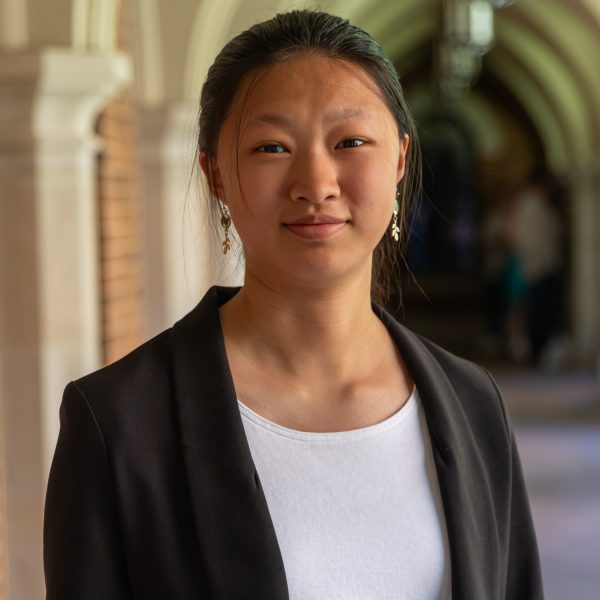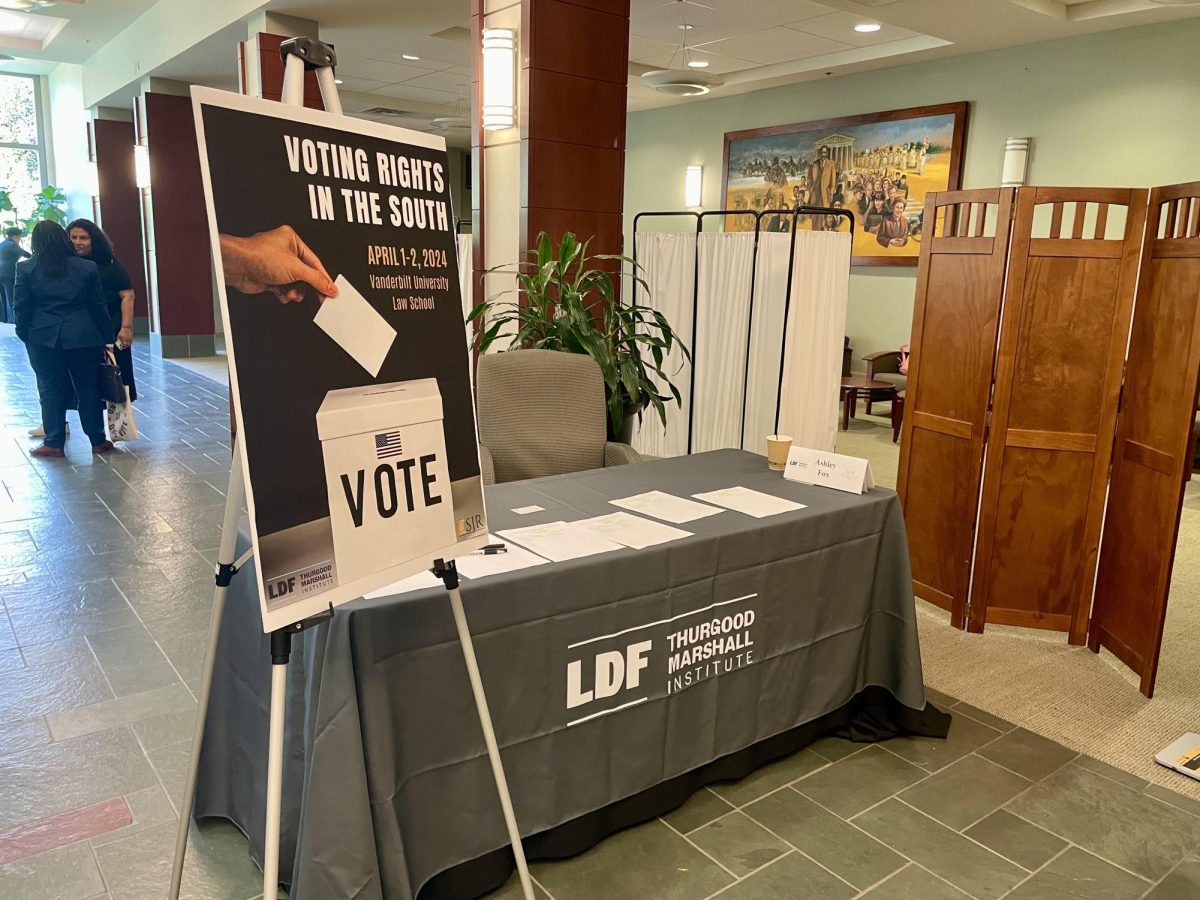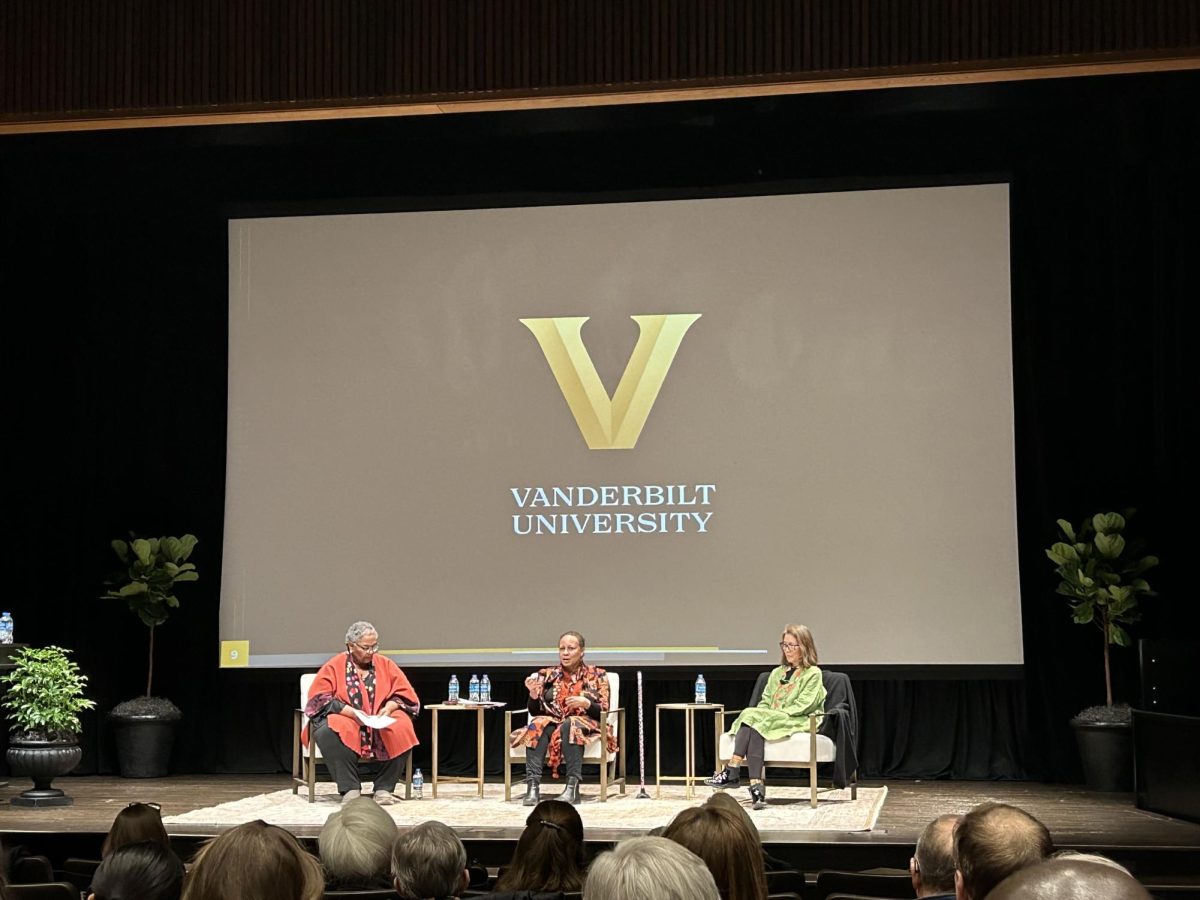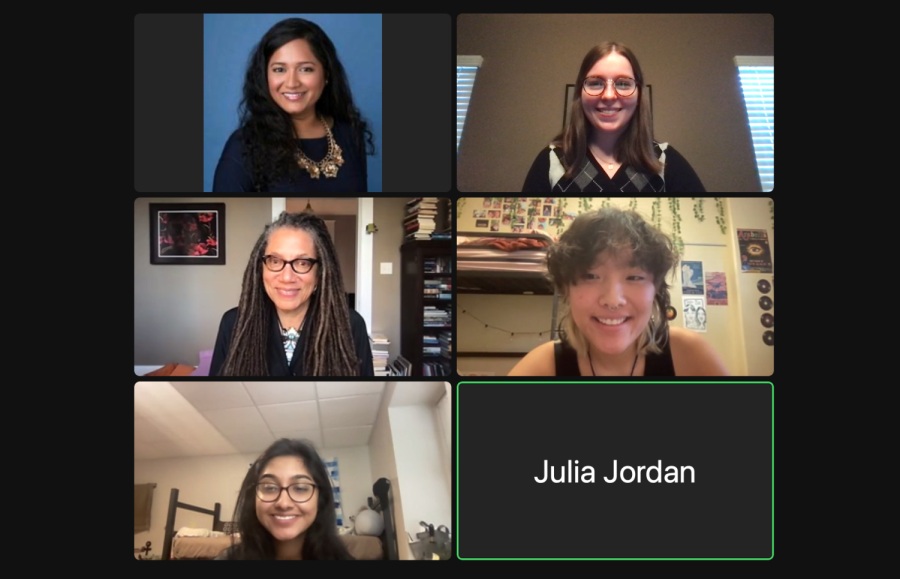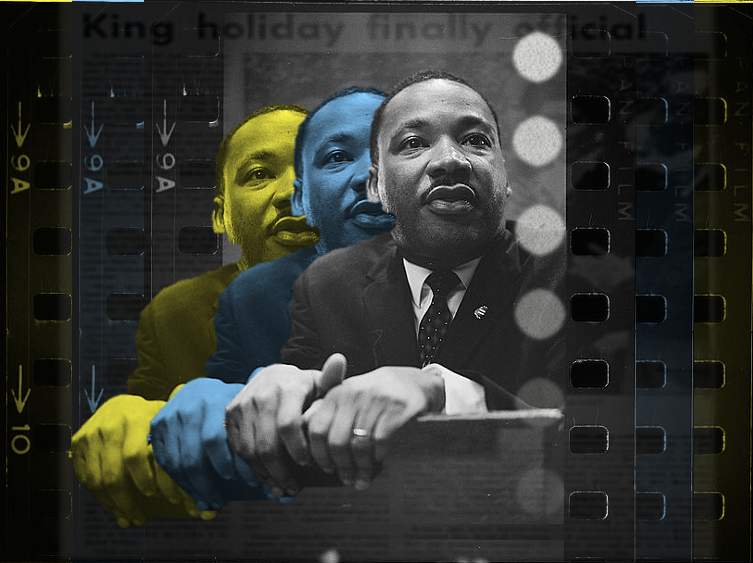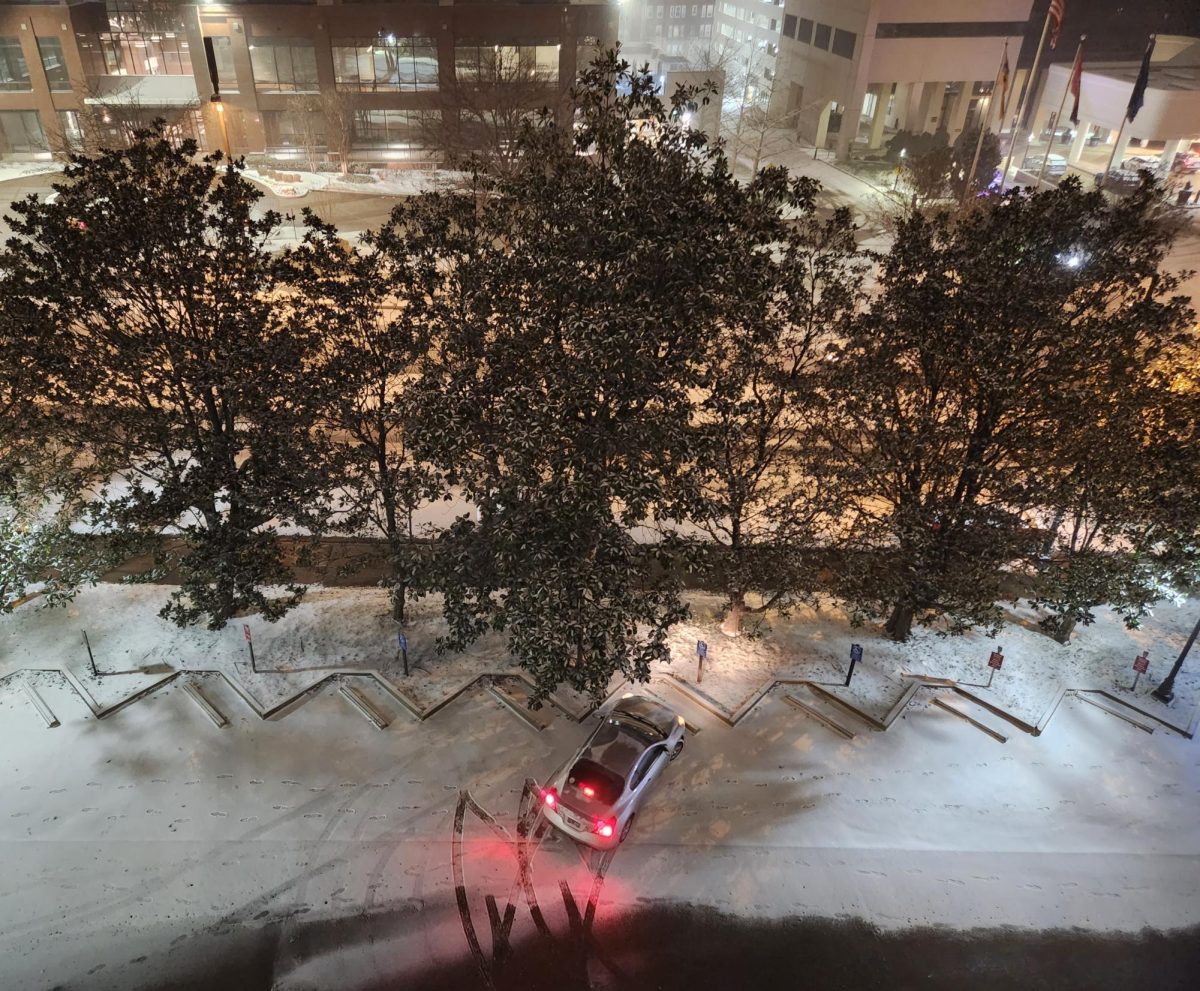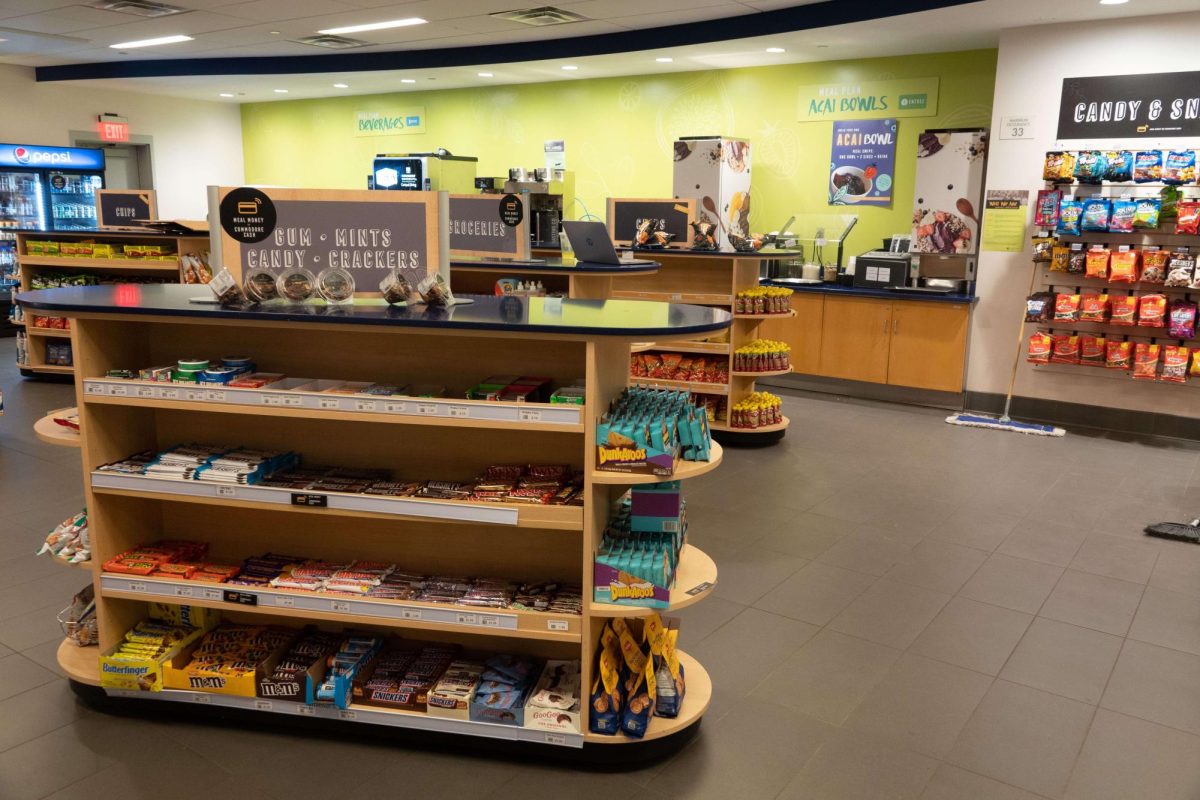Nashville’s annual Martin Luther King Jr. Day March was canceled and its convocation, organized by the Interdenominational Ministers Fellowship, moved to a virtual format due to inclement weather. Vanderbilt also shifted its own annual 2024 MLK Day Commemorative Event, originally to be held in Sarratt Cinema, to a virtual format on Jan. 15 in light of the snowy conditions.
Themed “One Vanderbilt, One Nashville, One Dream,” the Commemorative Event was hosted by Vanderbilt Divinity School Dean Yolanda Pierce and featured keynote speaker Khalil Ekulona, host of Nashville Public Radio’s “This Is Nashville.”
Chancellor Daniel Diermeier opened with a speech referencing Dr. King’s legacy of peaceful and nonviolent action as a model for addressing conflicts in the Middle East and Ukraine, social unrest, poverty and political polarization.
Diermeier referenced Reverend James Lawson, a former Vanderbilt student who was expelled in 1960 for organizing local sit-ins during the Civil Rights Movement. Diermeier called Lawson, who reconciled with the university decades later, a “revered” alumnus whose philosophy lives on at the James Lawson Institute for the Research and Study of Nonviolent Movements.
“The principle of nonviolence, you see, works by an appeal to the other side’s better angels,” Diermeier said. “And for that to work, we must believe that those angels exist and we must welcome them in. It took decades for Vanderbilt to welcome James Lawson back.”
Dr. King spoke in 1967 at Vanderbilt’s Impact Symposium — which also featured speakers such as Stokely Carmichael, Allen Ginsberg and Strom Thurmond — to a crowd of nearly 5,000 people in Memorial Gym. According to Diermeier, then-Chancellor Alexander Heard faced heavy criticism for inviting “radical” speakers that could instigate potential conflict.
Today, Diermeier said he hopes to carry forward the same “open forum” concept through Dialogue Vanderbilt, emphasizing values of civil discourse and mutual respect.
“We’re striving to give our students, who comprise the next generation of leaders and dreamers, the tools they will need to improve the world, including both how to speak up and how to listen, how to understand, to reflect, to respectfully challenge, but also about effectively compromise with others for the sake of needed change,” Diermeier said.
Ekulona’s address began with highlighting four key values: grace, integrity, honesty and understanding. He shared his personal experiences through which he believes he practiced these traits and carried out King’s lifelong mission.
“These four traits established the action in the spirit of what it means to love,” Ekulona said. “We have to look beyond our politics to truly understand ourselves and each other as humans.”
Ekulona also reflected on his life from interactions with his parents during childhood to teaching students as a camp counselor and later as a teacher. He discussed interning in Washington, D.C., his time in the military and moving to work and live in Nashville. Ekulona encouraged students to step outside their own comfort zones and connect with their diverse communities.
“Be curious. Look around. Take a risk. Strike up a conversation. You never know what story you’ll hear or what perspective you’ll gain,” Ekulona said.
Dean Pierce concluded the event by encouraging viewers to honor King’s memory by carrying forward his legacy in promoting nonviolence and justice.
“We celebrate on this day the complexity of his life and legacy,” Pierce said. “He found a way to somehow still speak truth to power, somehow still affirm human dignity and agency.”



